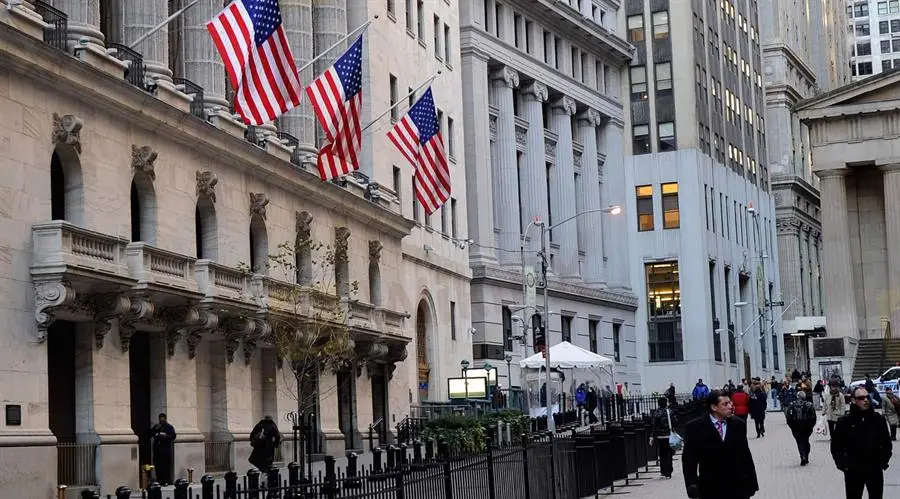简体中文
繁體中文
English
Pусский
日本語
ภาษาไทย
Tiếng Việt
Bahasa Indonesia
Español
हिन्दी
Filippiiniläinen
Français
Deutsch
Português
Türkçe
한국어
العربية
New York Fed Partners with US Banks on 3-Month Digital Dollar Project
Abstract:Some of the banks include BNY Mellon, Citi, HSBC and Wells Fargo. The Spanish banking community earlier this week launch a digital euro pilot project.

The Federal Reserve Bank of New Yorks Innovation Centre (NYIC) in partnership with some US banking giants has kickoff a three-month digital dollar proof-of-concept (PoC) project.
Take Advantage of the Biggest Financial Event in London. This year we have expanded to new verticals in Online Trading, Fintech, Digital Assets, Blockchain, and Payments.This project “will explore the feasibility of an interoperable digital money platform known as the Regulated Liability Network (RLN),” the US banking community noted. The goal of the project, the reserve bank further explained on Tuesday, is to “explore the feasibility of an interoperable network of central bank wholesale digital money and commercial bank digital money operating on a shared multi-entity distributed ledger.”

Participating Banks
Some of the major banks and financial institutions participating in the projects are BNY Mellon, Citi, HSBC, Wells Fargo, PNC Bank, TD Bank, Truist, U.S. Bank and Mastercard, among others. International messaging service provider, SWIFT, is also a part of the project. These organizations are to issue simulated digital money or tokens and settle transactions on them through simulated central bank reserves on the ledger.
“The PoC will also test the feasibility of a programmable digital money design that is potentially extensible to other digital assets, as well as the viability of the proposed system within existing laws and regulations,” the banks explained in a join-statement. NYIC added that the project will be conducted in a test environment and will adopt only simulated data.
The Center further clarified that the project is not targeted at advancing any specific policy outcome. The project also does not mean that the Federal Reserve “will make any imminent decisions about the appropriateness of issuing a retail or wholesale CBDC, nor how one would necessarily be designed.”
Digital Euro Pilot
The launch of the new digital dollar project comes days after up to 30 Spanish banks partnered to carry out new PoC trials to measure the impact of issuing a digital euro by the European Central Bank (ECB). The Spanish banking community project comes almost two months after the ECB selected five companies including Amazon to participate in a digital euro payment prototyping exercise.
The prototyping exercise, which will focus on different specific payment usage of the digital euro, is part of the ECB's two-year digital euro investigation project. The exercise is expected to be completed during the first quarter of 2023.

Disclaimer:
The views in this article only represent the author's personal views, and do not constitute investment advice on this platform. This platform does not guarantee the accuracy, completeness and timeliness of the information in the article, and will not be liable for any loss caused by the use of or reliance on the information in the article.
Read more

WikiEXPO Global Expert Interview: Advanced Practices and Insights in Financial Regulation
In the midst of rapid advancements and evolving landscapes in financial technology, financial regulation, and ensuring financial security, WikiGlobal stands at the forefront, closely tracking these transformative trends. As we embark on our series of exclusive interviews focusing on these pivotal areas, we are delighted to have had an in-depth conversation with.

Alleged Concerns with TradeEU.global's Trading Practices
An individual trader has come forward with allegations of an unfavourable experience while using the services of the broker TradeEU.global.

FTX Sets March 2025 Timeline for Creditor Payouts: What It Means for Investors
The FTX bankruptcy estate has outlined a timeline for reimbursing creditors and customers, with initial payouts scheduled to begin in March 2025.

Lured by False Promises: Malaysian Driver Lost RM218K to an Investment Scam
A 49-year-old e-hailing driver in Malaysia fell victim to a fraudulent investment scheme, losing RM218,000 in a matter of weeks. The scheme, which falsely promised returns of 3 to 5 per cent within just three days, left the individual financially devastated.
WikiFX Broker
Latest News
Saxo & Portuguese Bank Partnership
SEC Fines Broker-Dealers $275K for Incomplete SAR Filings
WikiEXPO Global Expert Interview: Advanced Practices and Insights in Financial Regulation
Lured by False Promises: Malaysian Driver Lost RM218K to an Investment Scam
FTX Sets March 2025 Timeline for Creditor Payouts: What It Means for Investors
What is an Economic Calendar? How it works
Italian Regulator Warns Against 5 Websites
SFC Freezes $91M in Client Accounts Amid Fraud Probe
Bybit Launches Gold & FX Treasure Hunt with Real Gold Rewards
Mastercard's 2030 Vision: Biometric-Driven, Tokenized Payments
Currency Calculator


